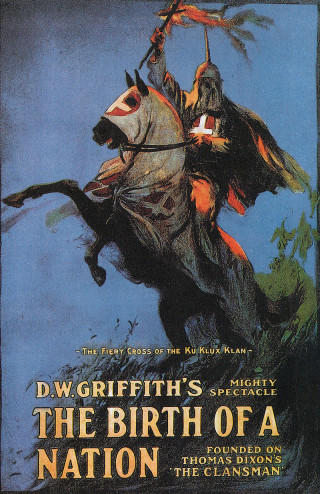In 1916 a 41-year-old man in Los Angeles published a short pamphlet called “The Rise and Fall of Free Speech in America.” In passionate if somewhat pompous tones, the author described motion pictures as “the laboring man’s university,” but warned that their power to educate and instruct the nation could be “muzzled by a petty and narrow-minded censorship” that would create “a sugar-coated, virtuously-garbed version … in order to satisfy the public mentors of our so-called morals.” He quoted dozens of journalists and politicians who opposed censorship, cited Shakespeare and the Bible for good measure, and protested that “this new art was seized by the powers of intolerance as an excuse for an assault on our liberties.”
The pamphlet’s author was the film director D.W. Griffith, and the subtext for his First Amendment flag-waving was the fierce campaign against his 1915 motion picture The Birth of a Nation. The longest and most expensive movie yet produced was an unprecedented box office phenomenon: Griffith biographer Richard Schickel estimates that by the end of 1917 it would gross $60 million, an unheard-of sum. But it was also hated like no picture before or since for its grotesque distortion of Reconstruction, in which black characters are sexual predators and vengeful thugs, former slave owners are persecuted victims, and members of the Ku Klux Klan are gallant saviors. Roy E. Aitken, one of the film’s producers, described The Birth of a Nation as “the most controversial film in America.”
A century after its release, that controversy is long dead. Film studies professors preface their lectures on the film with emphatic disclaimers about its politics, then teach it anyway because of its multiple breakthroughs in the use of editing, cinematography, and music. No serious critic would disagree with James Baldwin’s assertion in The Devil Finds Work that the film is both “one of the great classics of the American cinema” and “an elaborate justification for mass murder.” Like Triumph of the Will, it is a technical tour de force and a moral pariah, one that vividly illustrates the racist mindset: violent, paranoid, sexually neurotic, sentimental, and absurd.

